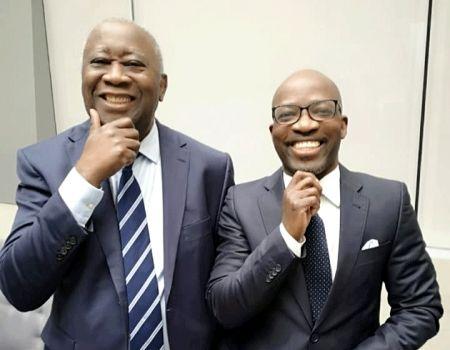
Since Monday June 22, Prosecutor of the International Criminal Court Fatou Bensouda and her team have been explaining and defending the reasons that led them to appeal the acquittal of former Ivorian President Laurent Gbagbo and his former Minister of Youth Charles Blé Goudé. The prosecution has three days to convince.
As expected, the prosecution is seeking a mistrial and the cancellation of the acquittals.
The prosecutor’s office denounces procedural flaws committed by the trial chamber. This acquittal decision “is not a patchwork,” emphasizes Deputy prosecutor Gallmetzer Reinhold. It should have been pronounced when the written brief was ready. The deputy prosecutor referred to the fact that the magistrates had submitted their written reasons six months after having decided to acquit the former president and the former Minister of Youth of Côte d’Ivoire.
For the prosecution, when they made their decision in January 2019, the judges could not have had time to analyze the 4,600 exhibits and 96 testimonies presented during the three years dedicated to the prosecution. This had an impact on the final outcome, i.e. acquittal, the prosecution argues.
On the victims’ side, the lawyer denounced “fundamentally unfair” procedures. She also recalled the differences between the three judges throughout the case. For Ms. Paolina Massidda, the trial did not shed light on the crisis of 2010-2011: “The right to truth, justice and possibly reparations has been biased because of the inability of the trial chamber to conduct a fair trial. We have identified several errors in the written decision of the judges. They failed to shed light on the post-election crisis in Côte d’Ivoire. »
For the defense, these arguments are unfounded. For two years, the prosecutor had time to present her case.
